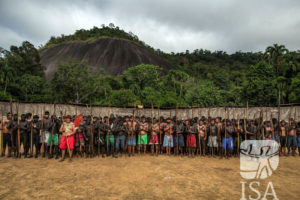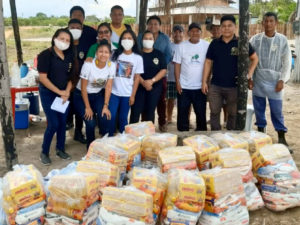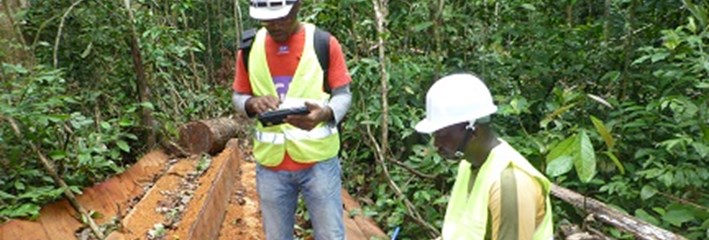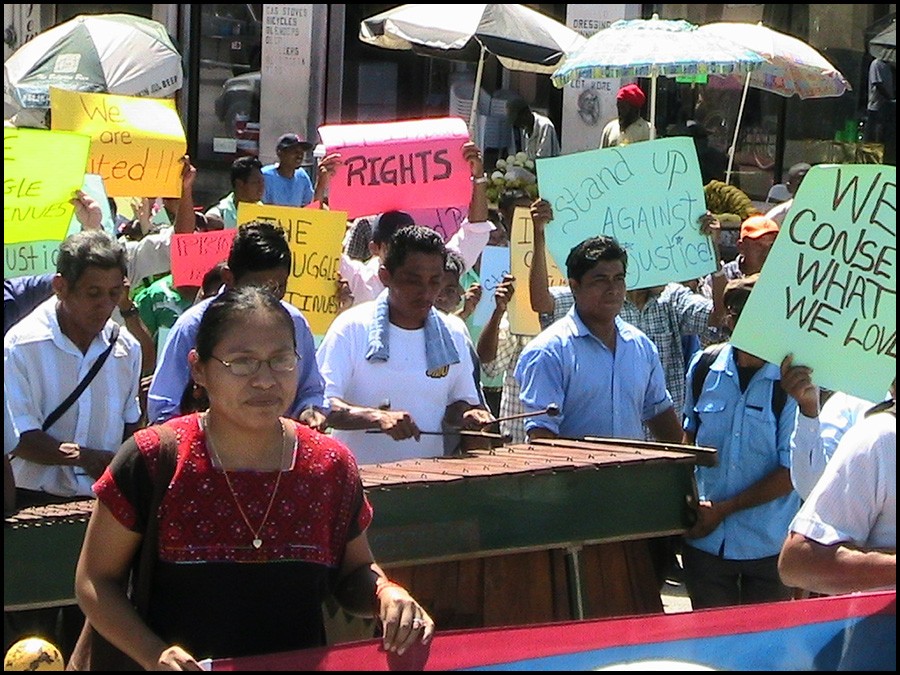Ground-Breaking Technology Allows Remote Forest Communities to Report Illegal Activity in Real Time
A technologically innovative system, unveiled today by Rainforest Foundation UK (RFUK), gives forest peoples the opportunity to send near-instantaneous, highly geographically accurate reports of illegal felling of trees, such as by timber or palm oil companies, from anywhere in the world, even where there is no mobile, phone, or internet connectivity.
Information on illegal activity in the forest can now be collected using a tablet computer or smartphone and then transmitted to an online map via a satellite modem transmitter in as little as 20 seconds—costing around the same as a standard text message. The live incident reports show where urgent action is required to prevent deforestation.
In collaboration with RFUK’s local partner, Forêts et Développement Rural (FODER), RFUK’s system has been tested in the rainforests of Cameroon, revealing 20 potential incidences of illegal logging.
Pascal (full name withheld for safety), a community member involved in the recent tests in Cameroon, said, “Illegal logging is a huge threat to our community. RFUK’s real-time monitoring system will allow us to report infractions and to get them to the all stakeholders at the same time so that the perpetrators can be identified and punished.”
Using an easily modified icon-based ‘incident reporting’ system, the technology can potentially be adapted to different kinds of forest monitoring, including wildlife populations, poaching, human rights abuses, or the implementation of carbon payment mechanisms such as REDD+.
Simon Counsell, Executive Director of RFUK said, “Our ‘real time’ technology is potentially a game-changer, as it helps empower forest people even in the remotest areas, and could transform the way that forests are monitored and governed. It can be an important and cost-effective complement to satellite-based monitoring, providing ‘crowd-sourced’ qualitative data. We are inviting governments of rainforest countries to work with us on a full-scale test of how community-based monitoring can be linked to formal enforcement mechanisms.”
RFUK is hosting an event in London on June 24th that will further explore opportunities, implications, and challenges of this new technology for forest governance. If you would like to join this discussion, either in person or by live video webinar, please email gro.k1713596307utser1713596307ofnia1713596307r@ofn1713596307isu1713596307.
Read More

Murder of Two Yanomami by Illegal Miners Heightens Fears of Renewed Cycle of Violence in the Brazilian Amazon
The murders reinforce the need for the Brazilian government to immediately expel the more than 20,000 miners illegally operating on Yanomami land.

Miners Out, COVID-19 Out: The Yanomami and Ye’Kwana People of the Brazilian Amazon Launch a Global Campaign to Expel Miners From Their Territory
Indigenous leaders demand the urgent removal of 20,000 illegal gold miners from their lands to prevent the spread of COVID-19

Voices from the Ground: COVID-19 Response in Roraima, Brazil
An interview with the Legal Advisor for the Indigenous Council of Roraima about adressing COVID-19 in his territory.
Support Our Work
Rainforest Foundation US is tackling the major challenges of our day: deforestation, the climate crisis, and human rights violations. Your donation moves us one step closer to creating a more sustainable and just future.



